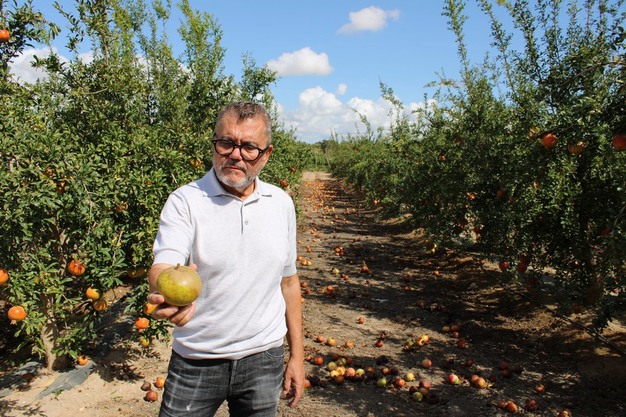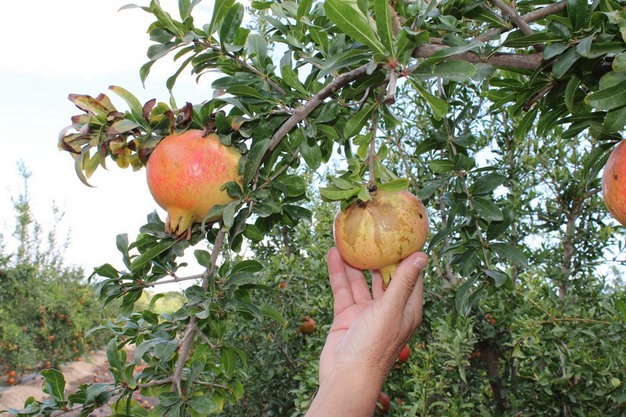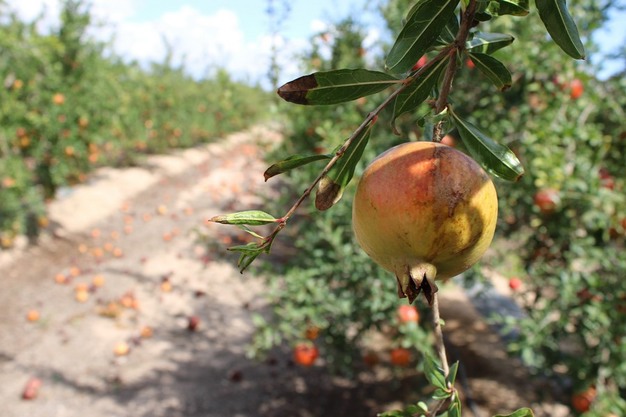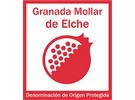The Mollar de Elche pomegranate sector, the only pomegranate in the world with a Protected Designation of Origin, is in a difficult situation due to the problems arising from the high temperatures and the appearance of a thrips plague that affects 60% of the production. This insect pest (Scirtothrips aurantii), originating from Africa and Yemen, arrived in Huelva in November 2020 and was detected for the first time in the Valencian Community this year, where it's affecting various crops including pomegranates.
 "In our case, the warm temperatures this winter have favored the development and spread of this pest. The main damage has occurred during flowering and fruit setting. The damage caused by the thrips to the fruit is noticeable as they scarred the pomegranate's rind," stated Francisco Oliva, president of the PDO Granada Mollar de Elche.
"In our case, the warm temperatures this winter have favored the development and spread of this pest. The main damage has occurred during flowering and fruit setting. The damage caused by the thrips to the fruit is noticeable as they scarred the pomegranate's rind," stated Francisco Oliva, president of the PDO Granada Mollar de Elche.
In addition, the high temperatures we've been suffering in recent years continue to cause sun damage to the fruits, he added. "Thus, producers are throwing a lot of pomegranates on the ground so that the fruit remaining on the tree achieves bigger calibers and quality."

According to an initial estimate, more than 24,000 tons of the 40,000 tons of pomegranates that the sector expects to harvest, i.e. about 60% of the production, will be affected by this situation, which places the economic losses between 12 and 15 million euros.
"We'll only find out what the real damage is when the harvest begins and all those problems rise in the fields and warehouses. We still don't know how many pomegranates from Elche will be certified with the quality seal, which has very high standards. Only the first and extra quality pomegranate is certified, and if the damage exceeds 25%, it cannot be labeled with PDO. That being said, it's worth noting that the pomegranates that reach the market, with or without the seal, will be in good condition for consumption," he added.

"This sector has already had bad seasons because of the drought, the effects of climate change, a drop in consumption due to inflation, low prices in the field, increased international competition, the presence of new varieties... and now we're affected by this plague," said Oliva. "Next week we'll meet with the Minister of Agriculture, Miguel Barrachina, to seek support and find solutions."
"We have thrips as a consequence of importing fresh fruit or trees from third countries with fewer health controls. We need to increase the security of import protocols and reinforce border control posts to avoid cases like this," Francisco Oliva stressed.
 For more information:
For more information:
DOP Granada Mollar de Elche
Tel.: +34 633 111 228
Email: dop@granadaselche.com
www.granadaselche.com
